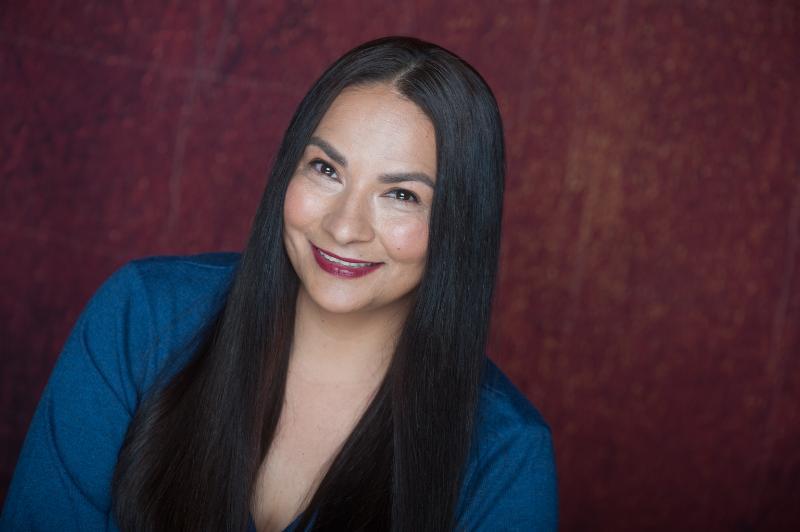NBC IDA Indigenous Screenwriting program coaches writers to find their voice in the film industry
New program at Capilano University is helping to empower a group of Indigenous people tell their stories

For Indigenous screenwriters, finding other Indigenous writers who are capable of providing feedback on film scripts can be tough.
Capilano University’s new Scripting the Future: the NBC IDA Indigenous Screenwriting (NIIS) program was created to help Indigenous writers, who have a screenplay in development, to further refine their story before pitching it to producers.
“Writing Indigenous story is an art form that takes time and many stages of review to nurture and weave the end product,” said program developer Doreen Manuel, director of the Bosa Centre for Film & Animation and Inclusive Community Projects at Capilano University.
NIIS provides burgeoning Indigenous screenwriters with both dedicated time and space to hone their skills, and the opportunity to receive valuable feedback on a script they are developing for film or television.
“This program really excited me because I am a writer and a story editor who gives time and attention to supporting emerging writers, but it is great to have feedback and guidance on my own work,” said current program participant Eva Thomas, a member of Walpole Island First Nation. “This program offers a really exciting opportunity to get feedback from Indigenous people who are writers themselves.”
Thomas gained acclaim for her short film Redlights, which premiered at the Toronto International Film Festival in September 2023. Through this course, she is revisiting the screenplay from Redlights to reconceptualize and evolve the story line to develop it into a feature length film.
“As a story editor, I see first-hand how a person can grow as a writer; I see how their work improves when someone cares about their work,” said Thomas. “A lot of projects I have worked on have gone to camera, and there is a lot of joy in that of watching writers grow and succeed. However, I realized a few years ago I really need to focus on my own development as a writer.”
The NIIS program is operated by CapU’s Indigenous Digital Accelerator (IDA), and co-funded by PacifiCan and NBC Universal. The joint funding model delivers full program funding so participants are able to take part without any associated costs.
The NIIS program began in Fall 2023 and will run until summer 2024.
Phase 1 involves 12 weeks of peer workshopping, where writers read and provide feedback on each other’s screenplays and have an opportunity to make edits as needed. In phase 2, each writer is paired up with an experienced story editor in the film industry to work one-on-one on continued development of their screenplay. Phase 3 involves each writer having an opportunity to hear their screenplays come to life through a virtual table read that will include a cast of talented Indigenous actors.
NIIS runs as an online program with participants meeting on Zoom. The remote class delivery model makes the NIIS program accessible to Indigenous creatives across Canada.
“Virtual learning is important for Indigenous learners. Many of our people have family and community responsibilities that make it impossible for them to travel to Vancouver for training. We are able to serve people from a variety of communities at the same time during these online sessions,” said Manuel.
Additionally, the work of a screenwriter can be very solitary at times. Being able to come together in this setting also gives writers the opportunity to not only find support, but to build a community that they can continue to connect with as they progress further in the industry with their work.
Manuel shares that Indigenous people were shut out of the film industry for many years. In that time, non-Indigenous people rushed in to the space and attempted to tell Indigenous stories. NIIS aims to upskill Indigenous storytellers and equip them to claim their rightful space within the film and television industry.
Thomas, who is also a graduate of CapU’s FILMBA program, which introduces Indigenous filmmakers to the business side of the film industry, says she has nothing but gratitude for Manuel and the CapU IDA program.
“These programs have allowed me to grow so much as a writer and producer. To have people who care about me as an artist, who care about my success and want to see me be successful is so meaningful,” said Thomas. “Doreen and the programs at CapU have helped this Indigenous Creative in Ontario, on the other side of the country, and I am so grateful for that support.”
The participants of the 2023-2024 Scripting the Future: the NBC IDA Indigenous Screenwriting program include:
- Petie Chalifoux (BC)
- Jamesie Fournier (ON)
- Tito Gomez (AB)
- Dustin McGladrey (BC)
- Eva Thomas (ON)
- Priscilla Wolf (SK)
- Karonhiarokwas Roxann Whitebean (QC)
Submitted by: Communications
